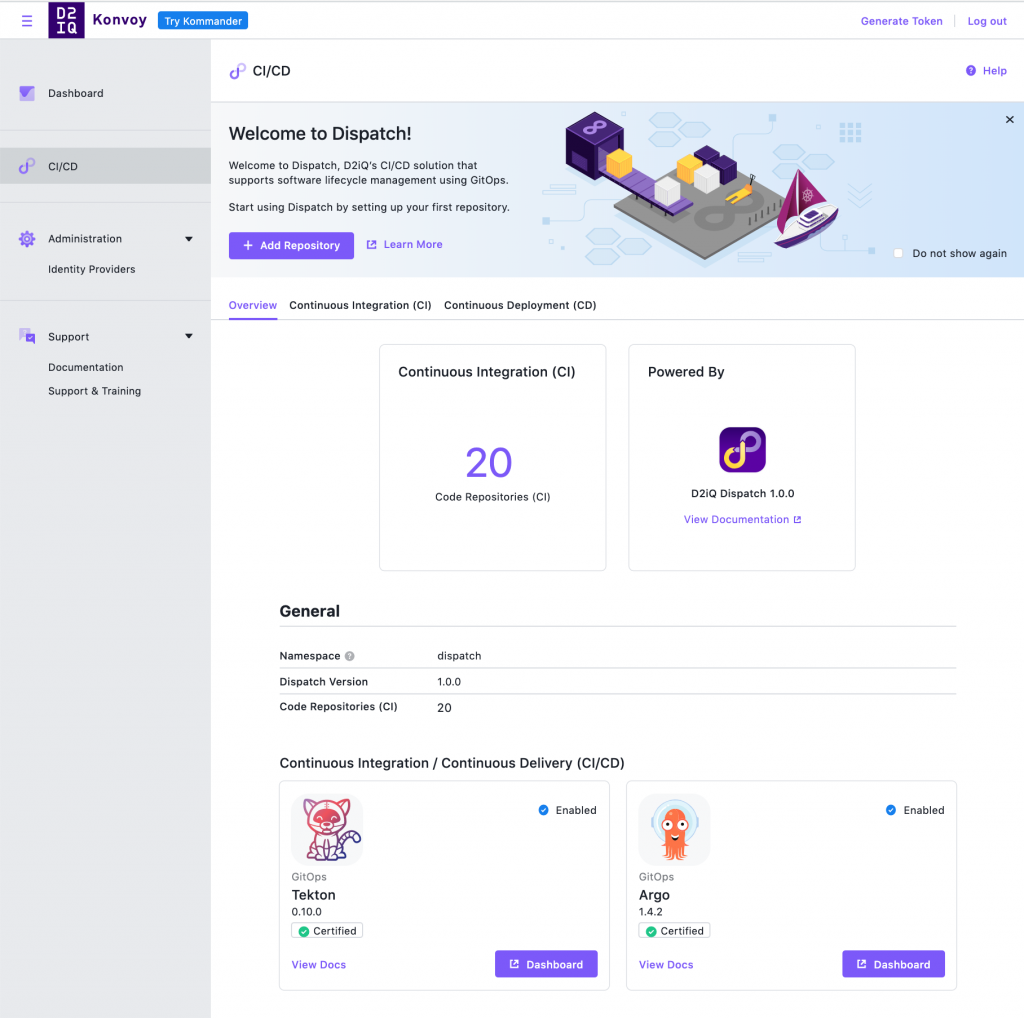D2iQ Delivers CI/CD Platform for Kubernetes
D2iQ has made available a continuous integration/continuous delivery (CI/CD) platform dubbed Dispatch that enables IT teams to build and deploy cloud-native applications using a declarative model designed from the ground up to run on Kubernetes clusters.
Ben Hindman, chief product officer for D2iQ, said as organizations transition to microservices-based applications built using containers, the limitation of legacy CI/CD platforms designed for monolithic applications are becoming more apparent. Chief among those deficiencies is the lack of a declarative approach to building pipelines that will serve to make a CI/CD platform accessible to a much broader number of IT teams, he says.
Dispatch also combines a range of open source tools including the Argo workflow engine, Kudo toolkit for building Operators and Tekton pipelines to create a CI/CD platform that strikes a balance between accelerating productivity and being mildly opinionated about how DevOps workflows should be constructed, Hindman notes.
 IT operations teams, for example, can make changes to pipelines without impacting the global state of the system. Designed to be run independently of other D2iQ products, the platform is optimized to run on D2iQ Konvoy, a managed instance of Kubernetes. Dispatch also enables developers to leverage a single orchestration tool and pipeline to construct builds anywhere without requiring configuration changes, notes Hindman.
IT operations teams, for example, can make changes to pipelines without impacting the global state of the system. Designed to be run independently of other D2iQ products, the platform is optimized to run on D2iQ Konvoy, a managed instance of Kubernetes. Dispatch also enables developers to leverage a single orchestration tool and pipeline to construct builds anywhere without requiring configuration changes, notes Hindman.
The goal is to make it easier to clearly delineate separation of duties between IT operations teams and application developers, he says. As part of the effort, D2iQ, formerly known as Mesosphere, makes available a range of tools for automated Kubernetes cluster management that trace their lineage back to technologies originally developed to automate the management of Mesos clusters at scale. By making available a CI/CD platform, D2iQ is also now making a case for reducing the number of IT vendors organizations need to build and deploy applications on Kubernetes clusters.
The D2iQ approach also provides IT teams with curated instances of open source tools that they would otherwise need to harden and support themselves for use in enterprise IT environments.
Of course, it’s not clear at what rate organizations might move to a CI/CD platform running on Kubernetes. Many DevOps teams already have a CI/CD in place that can be used to build microservices-based applications that will be deployed on Kubernetes platforms. The issue they will need to come to terms with is whether they view their existing CI/CD platform as flexible enough to meet their future needs. There will, of course, also be IT organizations that have not embraced DevOps that are now moving toward containers and Kubernetes. Many of those organizations will find that containers and Kubernetes will essentially require them to embrace best DevOps processes to successfully build those applications.
Most organizations, regardless of how the transition is made, will encounter both technical and cultural challenges alike. The real issue will be determining which platform address as many issues of the former while minimizing all the disruptions that eventually come from the latter.




